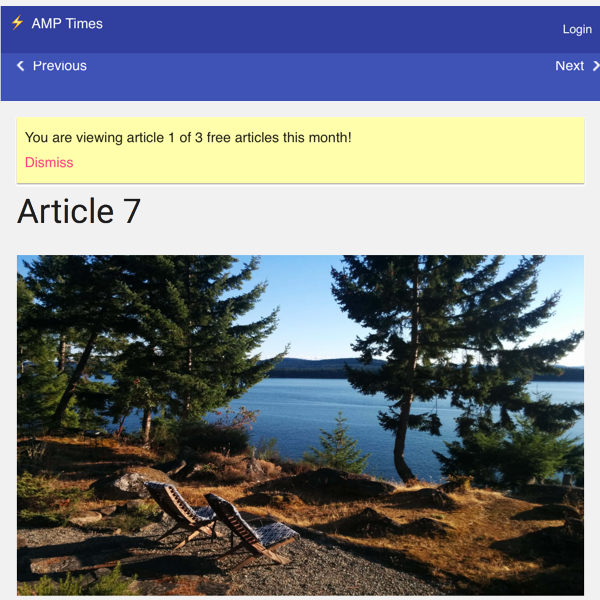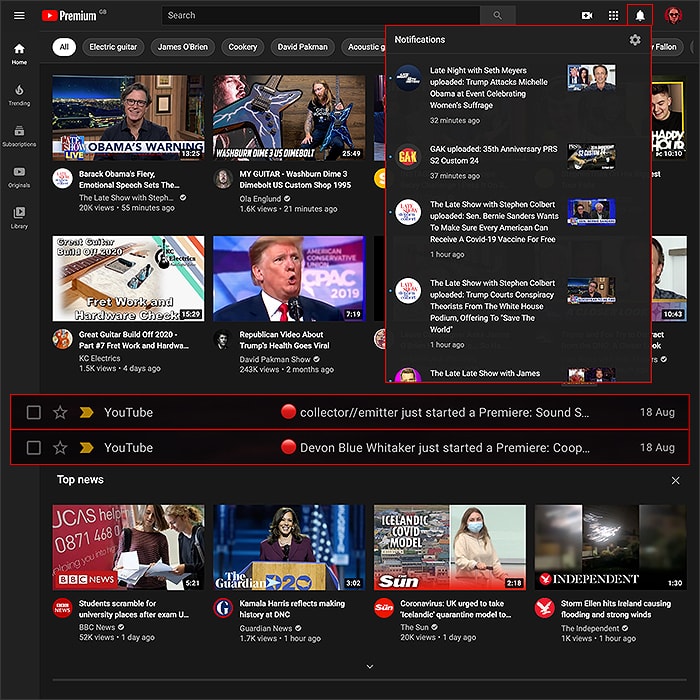Thoughts on AMP - Accelerated Mobile Pages - and Google's Strategy

There are many thoughts on why Google has introduced AMP - Accelerated Mobile Pages. Some are that Google is looking to provide genuine benefits, and are focused on speeding up the mobile experience. Many thoughts however are that it is defensive and reactionary by Google, e.g. responding to Facebook’s Instant Articles.
Here are some of our initial thoughts, no doubt these will evolve as AMP evolves.
What do AMP Pages Deliver
AMP pages are supposed to be exceptionally fast, and can be cached by Google (and others) for rapid delivery. This works especially well when using Google Apps / Google Search, and really doesn’t do anything in any other context currently. In the future it is possible that other apps and search providers will also embrace and leverage AMP, if publishers do, especially within their apps.
The Google Promise / Threat
Google says that it will rank faster pages above slower pages in it’s search results, and to achieve the fastest response times publishers will likely have to be AMP pages. In practice it is not necessarily the case currently that faster pages outrank slower ones as speed is just one of many factors in why pages get ranked higher than others.
How Ready for Prime Time is AMP?
When doing our initial research, we’d say that AMP is just not there except for free, simple content delivery where analytics, ads and authenticaton are not a priority. When working through the documentation, the FAQ’s say one thing, the Blogs say another, and links in the AMP documentation are broken or inconsistent. Most of the specifications also refer to themselves being very fluid at this stage.
It all highlights that the v1 AMP approach is very raw, and will be evolved extensively over the coming year.
AMP and Ads / Ad Blocking / Privacy Tools
This is the part of AMP which really falls down. It seems to us that almost every aspect of how AMP pages are to be coded will guarantee that elements such as ads, analysis and paywalls can be instantly blocked or disabled by privacy tools, ad blockers, and future plugins. Not only that, but it facilitates it in ways that make it exceptionally easy to do so.
To develop anything in the days where up to 40% of your pages are blocked / altered in some way, and then make it easy as pie to do so, simply does not make any sense to us.
When will AMP be Ready for Prime Time?
It depeneds somewhat on what you’re doing. If you simply want to publish your content free-to-air and are prepared to put up with your ads and analytics being disrupted then it’s ready. If not then it’s very hard to say when that time will come, if ever.
Google’s Strategy
What’s in it for Google to push for AMP? We have a number of thoughts, not in any particular order of priority. Firstly there’s no doubt that AMP is Google’s answer to Facebook’s Instant Pages, the timing of the announcement and the rushed feeling for the project all makes it way too much to be a coincidence. It’s offering largely the same premise that pages in AMP will be promoted and served by its servcies and apps, and that it will provide the caching infrastructure to quickly deliver the content.
What is unsaid is that there are two other equally compelling reasons for Google to want pusblisher to use AMP:
- Google Analytics is no longer accurate, with up to 40% of site visitors blocking the analytics Google is losing sight of what people are doing online, and that’s simply going to accelerate. By serving out the pages itself it will be able to count them directly without being blocked.
- Ad Blockers and Privacy Tools are increasingly successfully blocking ads and promotional elements, and inspite of rearguard actions by publishers, without a complete re-architecting of web page generation (like we have done at Affino) ads will continue to be more and more blocked. By establishing a new standard in how web pages are served, and in feeding out those pages, Google will look to future proof itself here in as many ways as possible.
Is Google’s Approach a Lawsuit waiting to happen?
We would suspect it is, if Google is no longer ranking all web pages at the top, but is instead ranking pages on the top that match it’s proprietary approach (dressed up with a very thin Open Source layer) then it is likely to be sued when it starts dropping the rankings of competing services which haven’t followed it’s specific take on how web pages should be crafted.
AMP and Affino
It’s clear that for our clients to make the best of AMP we would have to bake it right into Affino. It’s fair to say that it would be something of an investment, so the question comes down to timing and seeing if it takes off in any significant way.
There are a number of factors which make us look to do this later rather than sooner:
- AMP specs just aren’t ready / are way too fluid at this point, which means whatever we do would have to be iterated considerably.
- The benefits aren’t there on the Google side as irrespective of what Google says, as it’s not universally promoting faster over slower pages.
- We’ve invested four and a half years making Affino pages blisteringly fast, so that 95% plus of a page is already served from fast global caches, and the rest is all incredibly tightly coded for efficiency and when heavily used is all served from memory.
- Affino is as un-blockable as it gets and AMP pages are the opposite, so philosophically it doesn’t add up.
- We would need to develop extensions to Affino’s campaign serving which if they’re AMP compliant are therefore blockable. We would also need to develop extensions to Affino’s analytics and engagement wall / paywall, again these extensions are then blockable.
- It means handing yet more control of what you do to Google for it to monetise, and analyse, and little of it directly adds to your bottom line.
- We’re simply not convinced yet that all the effort involved with an AMP rollout will actually benefit our clients, although that can all change.
We’ll be keeping a keen eye on how AMP develops, and looking out for the lightning symbol on the Google searches to see how prevalent they become. We’re not puting a specific time down for when we might start developing AMP pages, but our gut feel is that if AMP really establishes itself, and there’s a compelling case to do so from multiple Affino clients, then we will begin rolling AMP elements out in 2017.
Of course, by then the blocking / privacy steamroller might have entirely disrupted it in any case.
Related
How can AMP improve mobile page loading speeds effectively?What benefits do publishers gain from adopting AMP pages?How does AMP impact Google’s search ranking algorithms?In what ways can AMP enhance user experience on mobile devices?What strategies can mitigate ad blocking issues within AMP pages?
Did you find this content useful?
Thank you for your input
Thank you for your feedback
Upcoming and Former Events
Affino Innovation Briefing 2025
Webinar - Affino Elevation Update Demo
Webinar - Introducing Affino's Fourth Generation AI Services
Webinar - Enhanced Affino Commerce & Subscription Capabilities
Meetings:
Google Meet and Zoom
Venue:
Soho House, Soho Works +
Registered Office:
55 Bathurst Mews
London, UK
W2 2SB
© Affino 2025



















